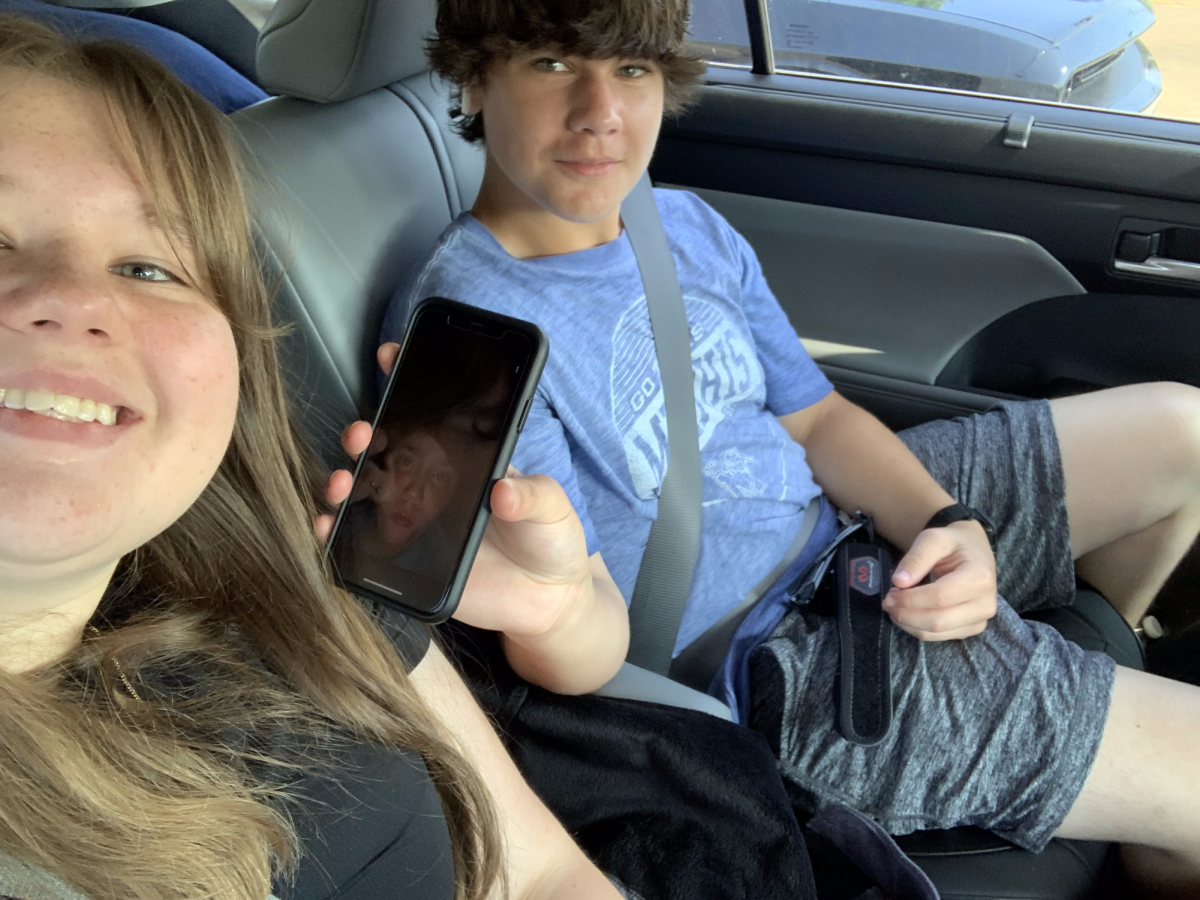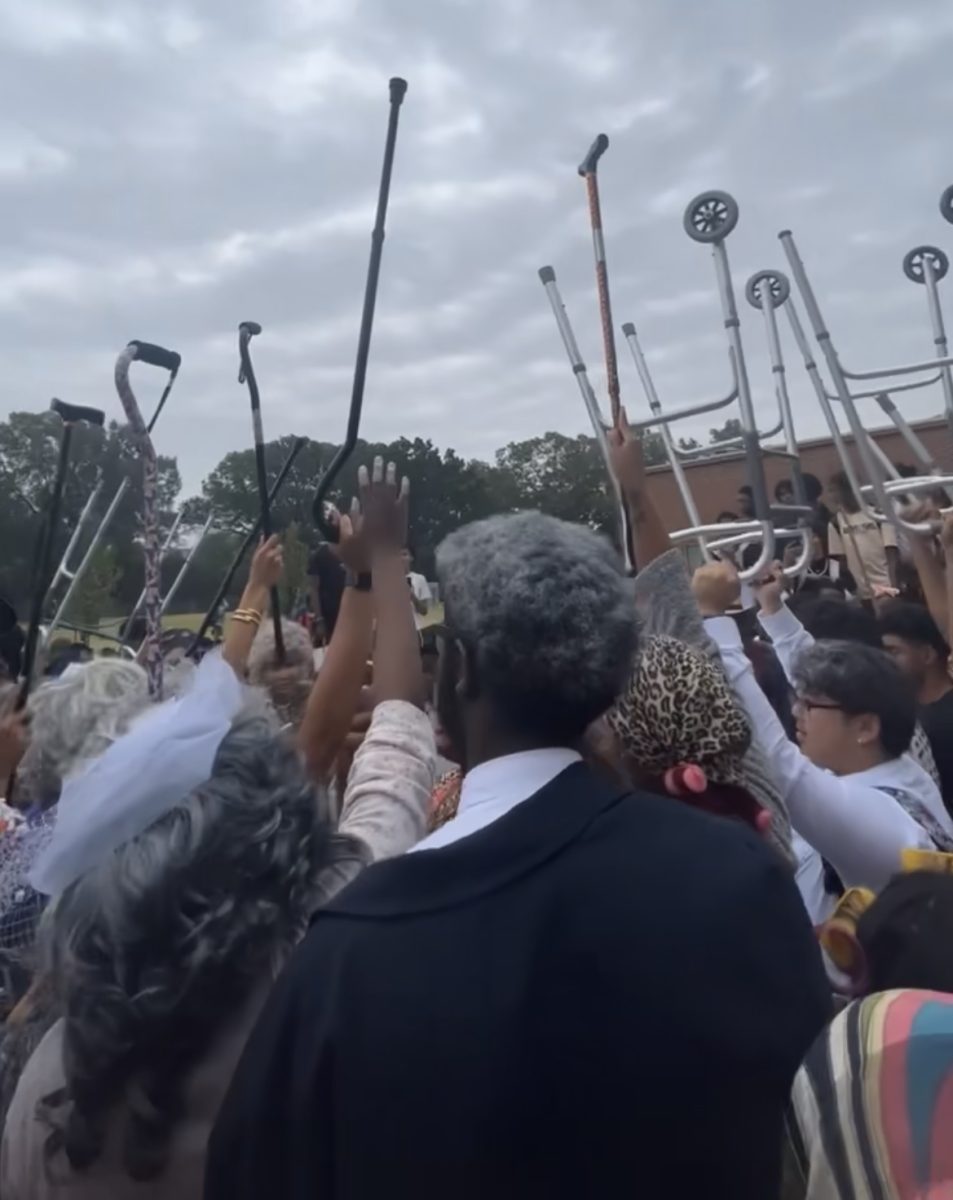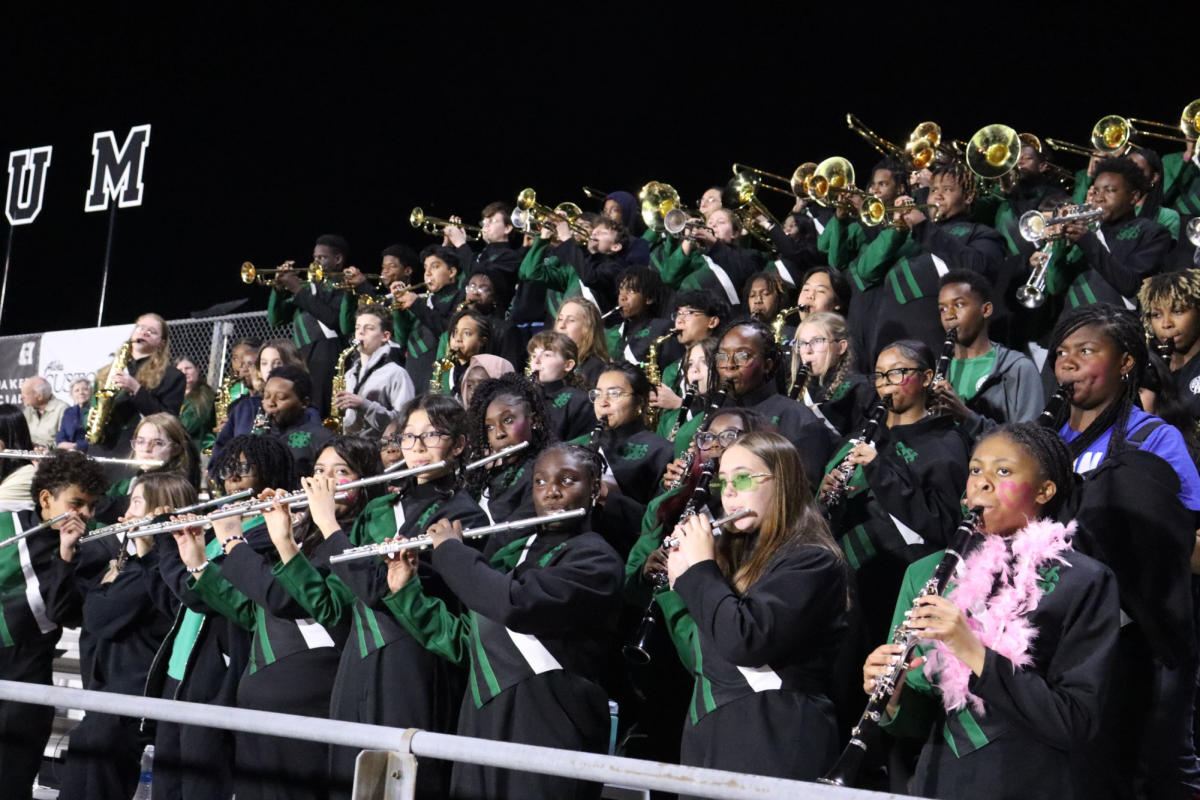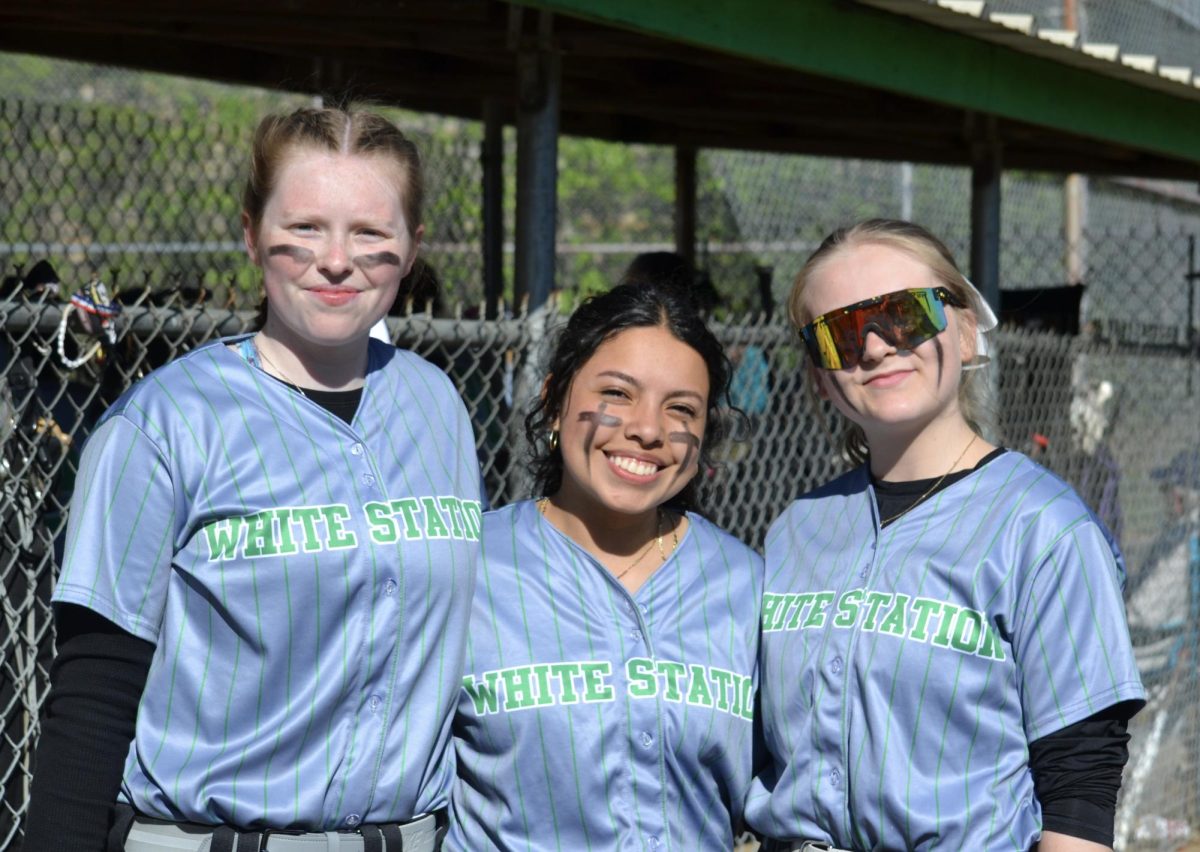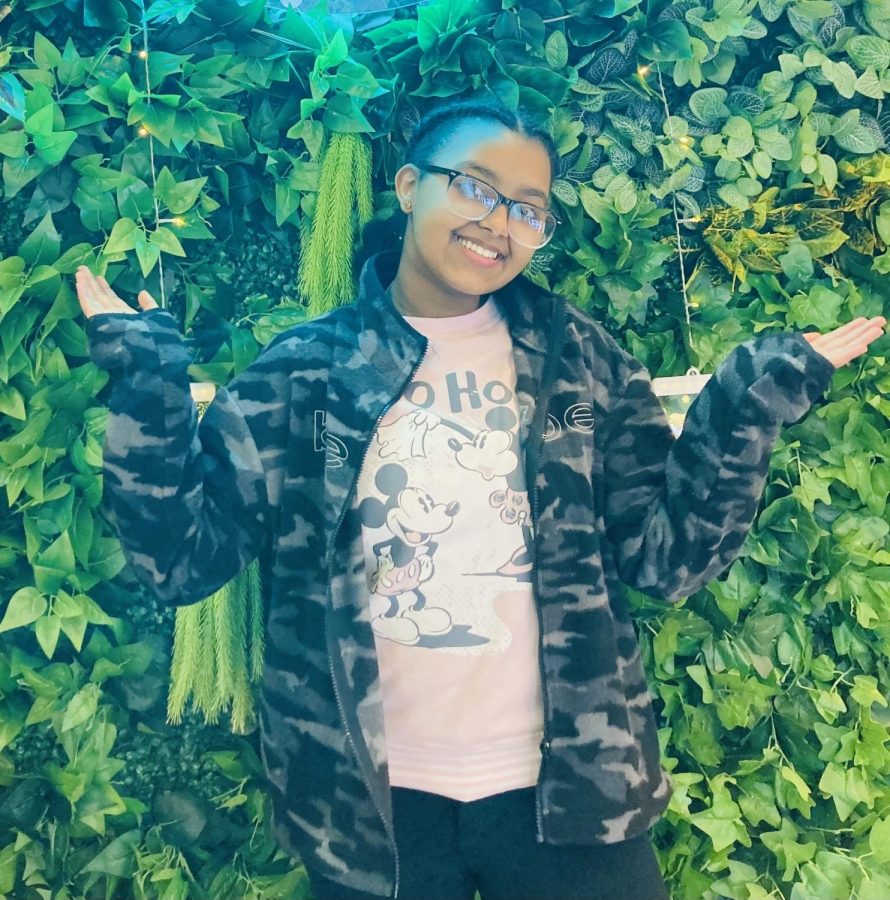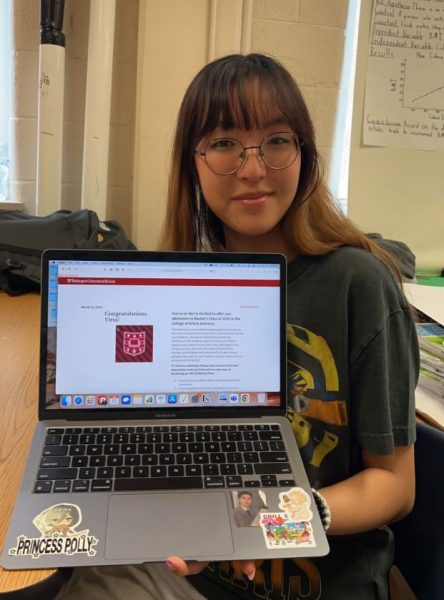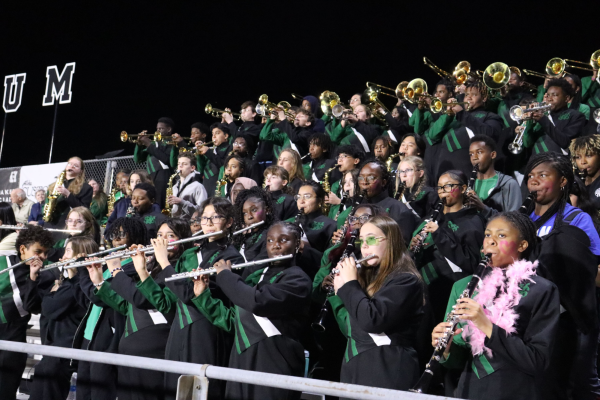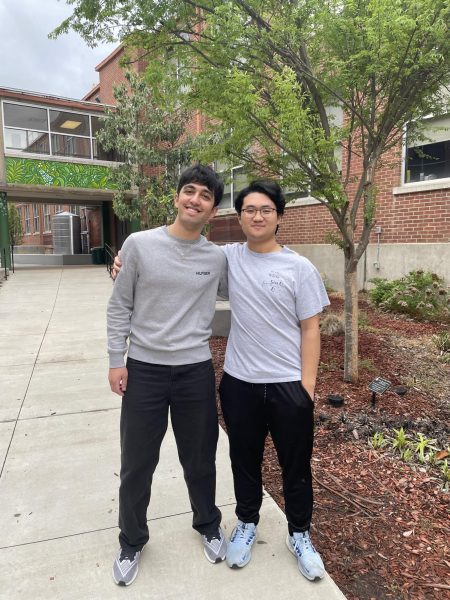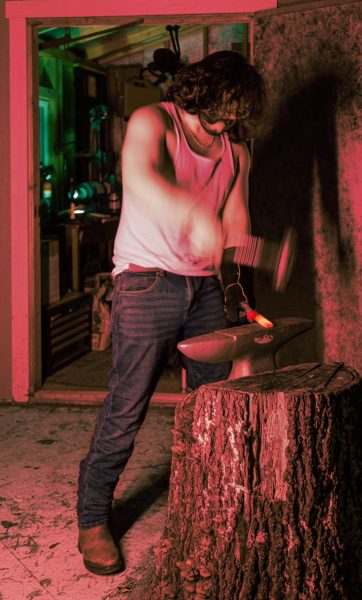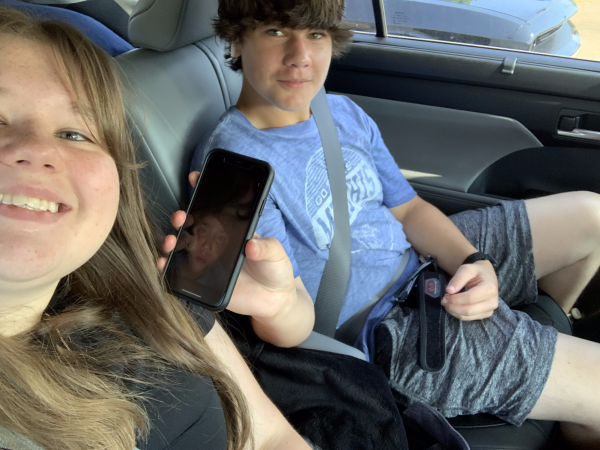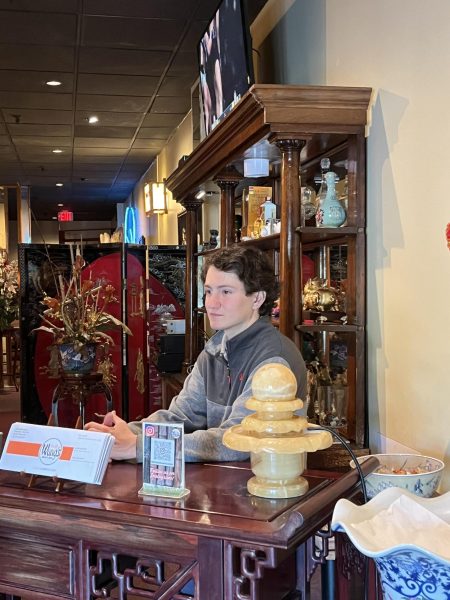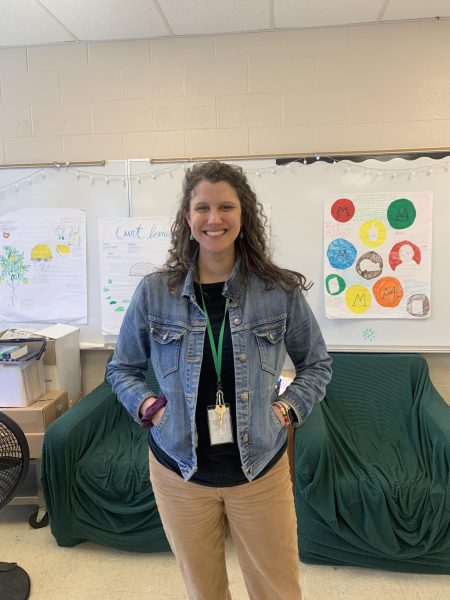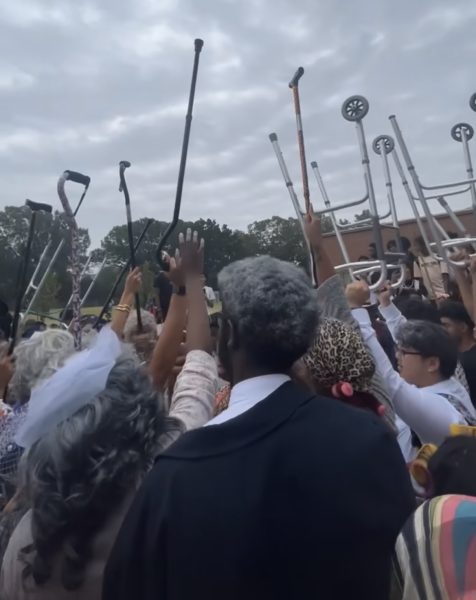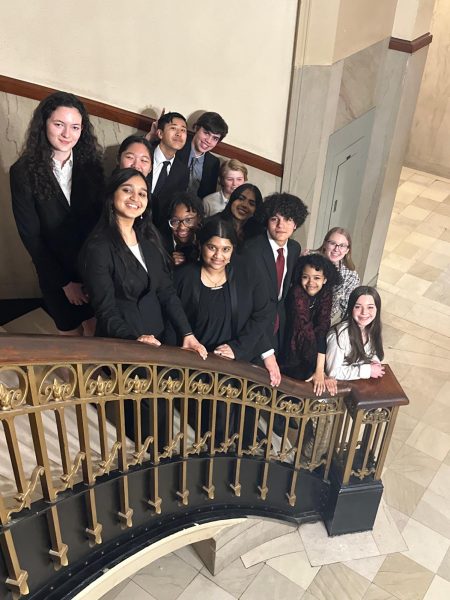When in Memphis: transfer students at White Station
LIANA MARKOS//USED WITH PERMISSION
During her sophomore year, Liana Markos (11) goes out with friends to Poke World — the first cafe she has eaten at in America. Markos has found that she likes to befriend people that have traits she aspires to possess.
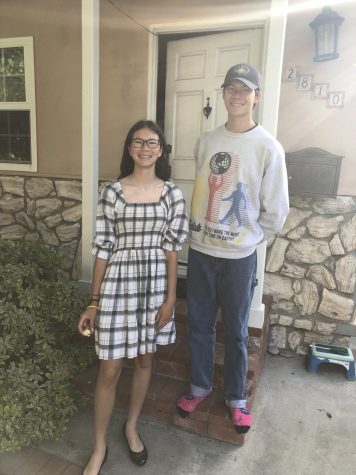
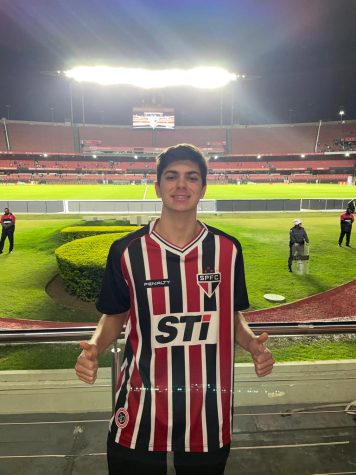
It is a July day at the Memphis International Airport and Diogo Trindade’s plane has landed after 12 hours and 30 minutes of travel. As he is waiting for his bag, he hears the parents of Dakota Carter (11), who he will live with for the next year, calling his name. This was the beginning of his year-long adventure as an exchange student.
Having lived most of his life in Indaiatuba, Brazil, Trindade decided to join an exchange program to work on his English — an important requisite for job opportunities in Brazil — and to gain independence
“It’s difficult to be honest, because [you’re leaving] your whole life behind to live a new one,” Trindade said. “[Y]ou get to know new people and new cultures, and I think that’s very nice to get to know about other people that you probably would never [know] if you stayed in your country.”
In Indaiatuba, Trindade attended a much smaller school consisting of a three-story building with four classrooms on each floor. Throughout the day, different teachers moved in and out of his one classroom that had 50 students. Additionally, all of his classes were government-mandated, so he did not have the option of selecting his courses.
“I think the big possibilities of [classes] that you can choose … [are] really good, and it helps a lot [for] people who know or don’t know [what] they want to [study in] college,” Trindade said.
Trindade is getting involved with the school by joining the soccer club, and he also plans to join the team this spring season, because he has played since he was four. As for his courses, his favorite is choir with Daniel Massey and Joseph Powell, who he even dressed up as for homecoming week.
“I thought it was really cool … because they were the first teachers that got my name correct,” Trindade said. “[A]ll the teachers treat me really well, but … they always look happy, and they try to make classes more interesting to students — making games, making funny stuff.”
Another student who has experienced education abroad is Liana Markos (11), who immigrated from Uganda in 2018. Originally from Eritrea, Markos moved to Uganda at the age of two and attended a private school with a class of 16 students.
“We stayed at school for more than like 12 hours a day, so our life pretty much was school,” Markos said. “The classes are hard … we have a total of maybe 12 periods in a day and you see every teacher twice … It was very stressful, but I learned a lot.”
In middle school, Markos’ goal was to join the optional program, which she achieved, and she is now enrolled in five Advanced Placement (AP) classes and is the president of five clubs including Zoology Club. She developed her love for biology in the seventh grade, and has found inspiration from science teacher, Dr. Chiezkie Madu.
“He’s a wonderful teacher,” Markos said. “He has done a lot in the [biology] field at the school. As a student of color, I look up to him because he’s always embraced his African heritage. I kind of get connected [to him] that way.”
While Trindade and Markos both moved from another continent, siblings Kiran Eyre (9) and Jackson Eyre (11) recently moved from Culver City, Calif. due to their mother’s new job in Memphis. Transferring from a performing arts school in California, White Station has been a change for Jackson Eyre.
“I like that it’s more strict, and they’re kind of back on things like skipping, and there are good opportunities to get help if you need it,” Jackson Eyre said. “It just feels a little more welcoming.”
Jackson Eyre is part of the school’s football team and jazz band, while Kiran Eyre has joined clubs such as the Asian American and Pacific Islander (AAPI) club and the Finance and Investing club. Outside of school, the siblings have tried Memphis barbecue and have seen views that are more rare back home.
“The skies were so pretty, because in L.A. we didn’t have many clouds and so the sunsets were kind of plain,” Kiran Eyre said. “They’re a bit livelier here cause you have the clouds and more colors.”
Despite the new views, foods and experiences, for the Eyre siblings, Markos and Trindade missing some aspect of home is a common thread.
“A lot of the places that I hung out at were places that I went to a lot growing up, so I sort of miss that, like the familiarity of just places,” Kiran Eyre said.
While Markos and the Eyres have permanently moved to Memphis, Trindade will only stay in the United States for a year. He is considering attending university in the states, but is still unsure. No matter the length of their stay, getting to know ‘the new kid’ is an opportunity for both parties to learn about another person’s culture.
“I’m from another culture, so if I talk to people, [they will] probably … be curious about [my culture] as well as I am curious about the other culture I’m starting to live in,” Trindade said. “[I] had my group in Brazil … it’s good to have your group. But, I think some people can be like — I’m not saying rude — but [they] try to avoid knowing new people.”
Your donation will support the student journalists of White Station High School. Your contribution will allow us to purchase equipment and cover our annual website hosting costs.



